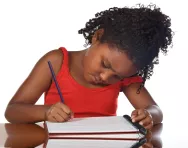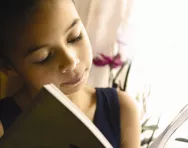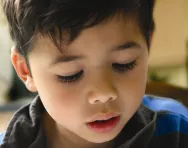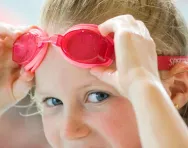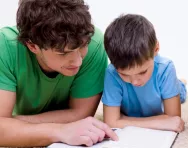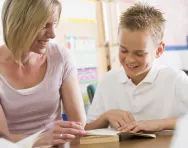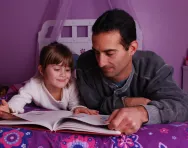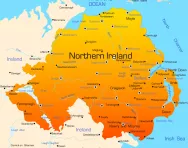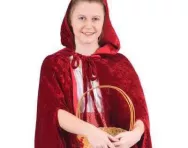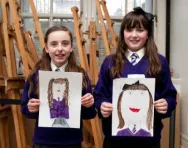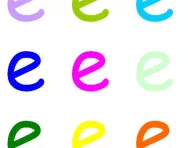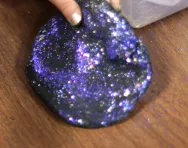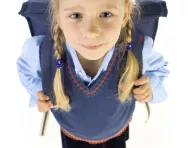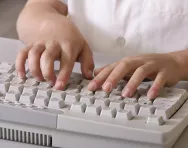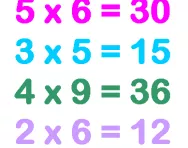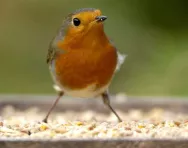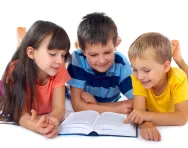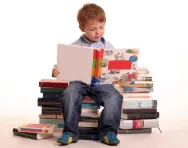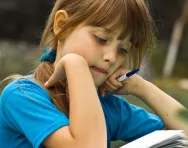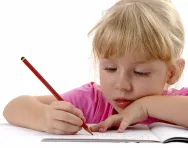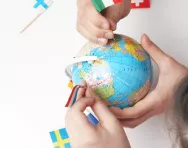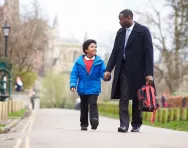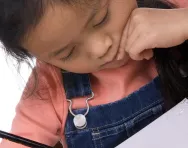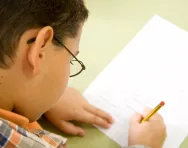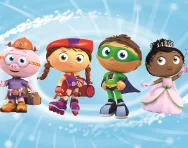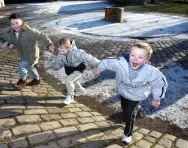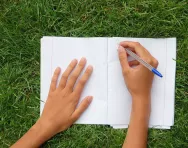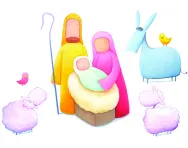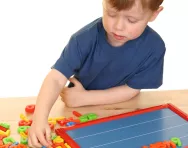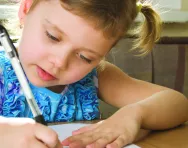Creative writing techniques for kids: a step-by-step guide to writing a story
Encouraging children to write a story of their very own can give them an enormous confidence boost, as well as help them consolidate their literacy learning by putting their phonics, grammar and reading skills into practice. Primary teacher Phoebe Doyle offers parents tips on how to get their children’s creative thoughts flowing.
How to improve your child’s reading skills in KS1
Parents naturally want their child to read to the best of their ability, but often aren’t sure how to help them build on the skills they learn in class. Primary teacher Phoebe Doyle offers some expert tips on what your child needs to know to move to the next reading level.
School reading schemes explained
Ask any parent of a Reception child about Biff, Chip and Kipper, and they'’ll know exactly who you'’re talking about. But just how do primary school reading schemes work, and how can you tell if your child is progressing at the right rate? Primary school reading schemes often use book bands to categorise reading materials. Book bands help determine the appropriate reading level for each child. Lucy Dimbylow puts these questions to the teachers who use reading schemes in the classroom.
What is mental maths?
The ability to work sums in your head is an important skill that primary students must develop throughout the key stages. We explain what mental maths means in National Curriculum terms, and how you can help your child become a quick calculations whizz!
Help! My child doesn’t want to go on school swimming lessons
Students in primary school are required to learn to swim, which is a difficult part of the curriculum for water-shy children to float through. Be prepared by finding out what the learning targets are, what responsibilities your school has, and how to help your child feel confident about taking the plunge.
5 ways to teach relaxation skills to your child
Knowing how to keep calm in emotionally difficult situations is an important life skill that’s never too early to learn. Even if you don’t feel you’ve mastered it yourself, you can still help your child manage their stress levels – and perhaps improve your own stress management in the process. Educational psychologist Lisa Gupta lends her top tips for parents.
Reading comprehension explained for parents
Once your child can read they’ll be working on understanding what they read and really engaging with words in their literacy lessons. Reading comprehension is also a big part of SATs. Teacher Alice Hart explains how you can help boost your child’s skills at home.
Teachers’ top 10 classroom discipline tricks
Does every homework session end in tears and tantrums? Or are you losing sleep over getting your child to learn their spellings? Lucy Dimbylow asked the people who manage 30 children at a time (gulp!) – teachers and teaching assistants – to share their tried and tested tricks.
Reading to learn: how to get the most from reading with your children
Reading with your children at home not only lets them practise new words and sounds, but it can also help to improve their reading comprehension skills. Education writer and primary teacher Phoebe Doyle gives her top tips on helping to enrich reading time to prepare them for KS1 English SATs.
6 World Book Day activities for EYFS, KS1 & KS2
Celebrate World Book Day with these fun ideas for children of all ages – get a free book, join a reading group, raise money for charity and more!
An overview of the English education system
A parents' guide to the key stages and assessments within the structure of the education system in England.
An overview of the Scottish education system
How does the school education system work in Scotland? What are the differences between the National Curriculum and the Curriculum for Excellence? We explain how students are assessed within both systems in the UK.
An overview of the Welsh education system
A quick guide for parents about how the education system in Wales is structured, plus information about the National Reading and Numeracy Tests and the curriculum for Wales.
An overview of the Northern Irish educational system
Understand more about the curriculum used in Northern Ireland and how students are assessed with this brief guide.
No-sew costumes for World Book Day
As the children get excited over book week, it can leave us parents feeling more than a little stressed! Time-poor and not at all sewing-savvy Phoebe Doyle has some simple suggestions for effective World Book Day costumes that won’t break the bank.
What your child can learn from doing a self portrait
Children often draw pictures of themselves, along with friends and family. Self portraits are actually a key part of learning and personal development, so provide the paper, pencils and opportunity for your child to have a go.
What is ‘magic e’ or a split digraph?
The way children learn to spell using phonics and phonetic terminology can cause utter bewilderment to parents trying their best to help at home. Primary teacher Phoebe Doyle is on hand to explain the ‘magic e’, or split digraph.
4 ideas for homemade playdough
Help your child develop the motor skills needed for handwriting with these no-skills-needed ideas and recipes for playdough and similar slimy substances – ideal for sensory play and scientific investigations!
The parents’ guide to school trips
It feels like five minutes ago that you were peeling a tearful child off your leg at the school gates; now it’s your turn to weep at the thought of them going on a residential trip! We answer your questions – and ease your worries – about residential visits. By Lucy Dimbylow
How to keep your child safe online
With technology advancing faster and faster, parents are finding it more and more difficult to stay on top of how their children are using the internet. We spoke to mum and internet-safety guru Pamela Whitby about what you can do to protect your child online.
Times tables: 10 things every parent needs to know
If you're a KS2 parent, chances are you'll spend more time than you ever thought possible looking for ways to help your child learn their times tables. Here are the ten things you should know before you get started.
How to make your garden bird-friendly
Birdwatching is a brilliant learning activity to do at home that can also encourage your child to take an interest in the outdoors. We speak to the RSPB about how you can make your garden or balcony more appealing for birds, leading to better birdwatching!
11 things parents need to know about the National Curriculum
It’s the basis for what your child learns every day, but what exactly is the National Curriculum and what does it teach? Education writer and primary teacher Phoebe Doyle offers some clarity.
Book-bored to bookworm: expert tips to get your child reading
Worried that your child always chooses screen time over books? Mum and teacher Phoebe Doyle asks the experts about turning your child into a busy bookworm.
Your KS1 SATs questions answered
KS1 SATs are no longer compulsory, but they may still be administered by some schools and it's likey that most parents have heard of them. We answer the questions whirling around in parents’ heads about what KS1 SATs are, if and when they’ll be administered, and how you can help your child reach their full potential.
Teachers’ tips to make tricky spellings easy
Does making your child prepare for the weekly spelling test make your heart sink? Forget mindless drilling – primary teacher and preparing-for-spelling-tests veteran Phoebe Doyle has found ways to take some of the stress out of learning tricky words.
How to create a reading-friendly home
Switch off the screens and help make reading a fun, relaxing and engaging pastime for your child by implementing these expert tips from primary school teacher and parent Phoebe Doyle.
Education, health and care plans (EHCP): expert tips to help parents
SEND experts Antonia Chitty and Tania Tirraoro explain how EHCPs work and share their tips on the application process.
Penpals: an engaging and lifelong learning activity
Revive the fading practice of letter-writing for your child through one of the penpal schemes available for students – not only can they practice penmanship, but they may make a friend for life!
Raising bilingual children
Like many skills, it’s best to start learning two languages as young as possible, but it’s not uncommon for parents to run into a few difficulties when raising bilingual children. TheSchoolRun offers advice and tips from parents who have first-hand experience to share.
How to plan a great year: achieving ideas for every month
Help your child be their best every month of the year! Follow these top goal-achieving tips from child development expert and bestselling author, Bernadette Tynan.
KS1 SATs writing assessment success
KS1 SATs are no longer compulsory, but may still be administered by some schools. If so, how will your child's writing be assessed at the end of KS1? We explain what teachers are looking for so you can help your child improve their work and boost their confidence.
What your child learns in Year 2 maths, English and science
Year 2 is when your child may take their Key Stage 1 assessments, but what does that mean? What will they learn? And how can you help? Find out in our parents’ guide.
Illusions and mind tricks: are your eyes fooling you?
Are you seeing what's really there, or is your mind tricking you? Professor Bruce Hood has three amazing illusions experiments to try, and explains more about how the brain works in his Royal Institution Christmas lecture.
Best educational TV for KS1 children
Science experiments, simple equations, reading practice and first cooking skills, all wrapped up in appealing television formats – your child will be enjoying their screen time so much they won’t realise how much they’re learning. Here’s our pick of the best programmes for Year 1 and Year 2 children.
6 outdoor activities for wintry weather
Just because it’s cold doesn’t mean you need to stay indoors! Bundle up and get everyone outside to enjoy these fun learning activities, perfect for chilly temperatures and snowy weather.
8 great handwriting activities
Put the fun into handwriting practice! From everyday shopping lists to rainy day bookmaking, there’s something to inspire children of all ages and interests to pick up a pencil, says teacher and mum-of-two Phoebe Doyle.
Nativity cringe stories
Heart-melting occasion? All too often, your child’s performance in their school Christmas play leaves you wishing the ground would swallow you up. These not-so-proud parents shared their shame with Lucy Dimbylow
Phonics and sounds explained
Wondering what those noises that your child has been chanting to you are? They're probably practising their phonics sounds – we explain what the sounds of phonics are, and how you can help your child learn them in Reception and beyond.
Handwriting dos and don’ts
Practising handwriting at home doesn’t have to be about copying out rows of letters and reaching writing targets. Make writing fun with these helpful tips from primary school teacher Phoebe Doyle.
